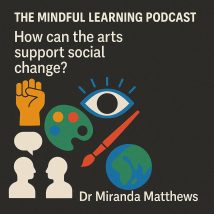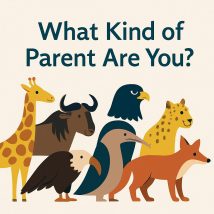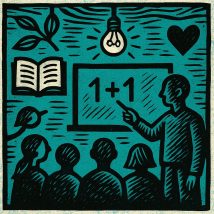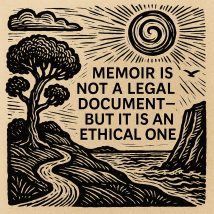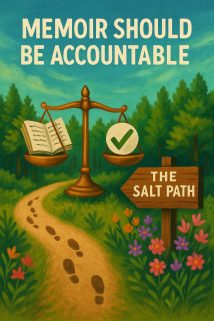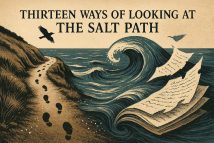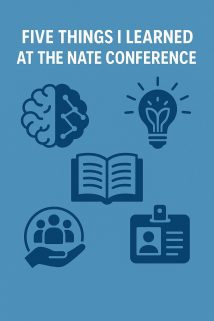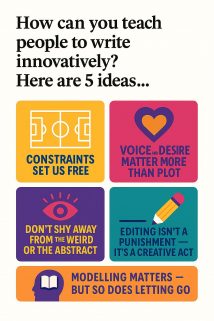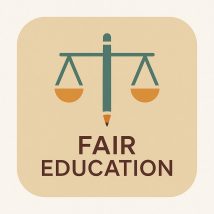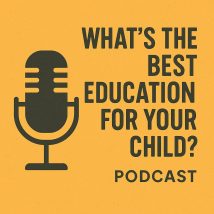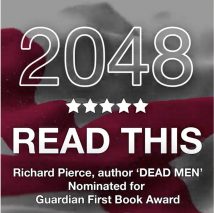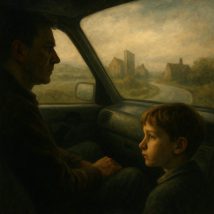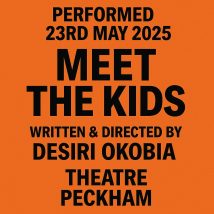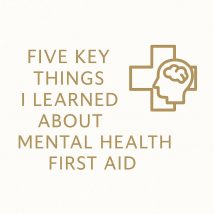Opinion
Here I comment on a wide range of issues from education to politics, the arts and more. I welcome lively and opinionated debate, so please leave your comments.
-
Five Ways Arts Practice Can Facilitate Social Change
🎙️ I wrote this blog and recorded this Mindful Learning Podcast episode because I believe the arts are a powerful, often overlooked force for real social change. In conversation with Dr Miranda Matthews, we explore how creative practice can help us respond to the climate crisis, amplify marginalised voices, and transform education from the ground up. We talk about art as participation, not performance; about murals in schools and selkie suits in seal sanctuaries; and about how storytelling and small actions ripple outwards. 🖼️ This one’s for teachers, artists, students—and anyone wondering how creativity can make a difference. 👉 Read the blog and listen to the podcast: https://www.francisgilbert.co.uk/2025/07/five-ways-arts-practice-can-facilitate-social-change If you’re reading this on Instagram, please paste the link into your browser to access the full article and audio. #MindfulLearningPodcast #ArtsForChange #CreativeEducation #FrancisGilbert #MirandaMatthews #EcologiesInPractice #Goldsmiths #ArtsAndLearning #ClimateJustice #CriticalPedagogy #StoryOfChange
-
What Kind of School Parent Are You?
🦒🦊🐆 What kind of parent are you when it comes to your child’s education? I’ve spent decades working in education, as a teacher, author, and now as Dr Francis Gilbert, Head of Education at Goldsmiths, University of London. I’ve written two books for parents about navigating schools, Parent Power and Working the System, and while they’re over a decade old, revisiting them recently reminded me how little has changed. The system is still confusing. The stakes are still high. And parents are still left feeling overwhelmed by league tables, playground gossip, and hidden admissions rules. That’s why I’ve created this quiz. It’s short, fun—and surprisingly revealing. You’ll discover your instinctive parenting style when it comes to education. Are you a Giraffe? A Fox? A Wildebeest? Each result comes with advice you can actually use. 🎯 It’s more timely than ever—because your approach as a parent really does shape your child’s experience at school. 📥 Take the quiz and download the free printable version from my website. 👉 If you’re reading this on Instagram, you’ll need to paste the link into your browser to access the full article and quiz. #Parenting #SchoolAdmissions #EducationMatters #ParentPower #FrancisGilbert #Goldsmiths
-
Eight Transformative Moments from Our Reciprocal Teaching Day at Goldsmiths
🖋️ “It didn’t have to be clever. It just had to be true.” At a recent MA Creative Writing and Education sharing day, alumna Maryam Ahmadi led a powerful storytelling session exploring how fables can carry emotional and moral truths that essays and arguments often can’t. The bold linocut-style image here captures the spirit of the session: a teacher and group of students surrounded by symbols of learning and connection—a heart, a lightbulb, a book, and leaves. A chalkboard shows the simplest of equations: 1 + 1, reminding us that real learning is reciprocal. When we share stories, we’re not just transmitting knowledge—we’re transforming one another. Maryam began by reading Patrick and Flippa, a deceptively gentle children’s book about a lonely polar bear and a persistent penguin. The group then wrote their own fables, revealing themes of exile, regeneration, defiance, and hope. One participant wrote about a deer who could only speak in questions. Another told of a fish who forgot how to swim in clean water. These were not writing exercises. They were acts of quiet truth-telling. 💡 As one attendee put it: “It’s easier to say something difficult through the story of a fox. You get closer without flinching.” 📚 This workshop was part of the MA in Creative Writing and Education at Goldsmiths, University of London—a unique programme where writers become educators, and educators deepen their creative practice. 🔗 Find out about the MA: www.gold.ac.uk/pg/ma-creative-writing-education/ #MACreativeWritingAndEducation #GoldsmithsUniversity #StorytellingAsPedagogy #MindfulTeaching #Fables #CreativeWritingWorkshop #WritingToHeal #WritingToLearn #RadicalPedagogy #TeacherWriter #ReciprocalLearning
-
How Much Truth Is Enough? Reflecting on Raynor Winn’s Response to The Observer
What happens when the story you loved starts to shift? In this piece, I explore Raynor Winn’s recent public defence of The Salt Path—a statement both moving and evasive. While condemning the abuse Winn has received, the article interrogates what her response reveals (and conceals) about the ethics of memoir. Did the omissions distort the truth? What kind of trust do memoirists owe their readers? And when real-life complexities surface, do they deepen a story—or destabilise it? This isn’t about cancellation—it’s about accountability, narrative framing, and the quiet power of what’s left unsaid. #MemoirEthics #RaynorWinn #TheSaltPath #NarrativeTruth #LifeWriting #CreativeNonfiction #MindfulWriting #EthicalStorytelling #WritingCommunity
-
Ten Ethical Complexities of Memoir: After The Salt Path, and Two Decades After My Own
In my last post, I explored Thirteen Ways of Looking at The Salt Path. This follow-up dives deeper. Raynor Winn’s The Salt Path moved many. But recent reporting has raised ethical questions about omission, accountability, and the seduction of “emotional truth.” What are the responsibilities of the memoirist—especially when their story brings them sympathy, sales, or status? In this new article, I reflect on my own memoir—and what I got wrong. I explore what I’ve learned as a writer, teacher, and mentor of emerging voices on the MA in Creative Writing and Education at Goldsmiths. 🧭 Memoir is a journey, not a monument. 🕊️ Truth needs ethics, not just emotion. 🌊 The Salt Path leads us to difficult but necessary questions. 🔗 Link in bio/comments #MemoirMatters #EmotionalTruth #CreativeWriting #TheSaltPath #EthicalWriting #FrancisGilbert #WritersOfInstagram #NonFictionNarratives #GoldsmithsWriters
-
Thirteen Ways of Looking at The Salt Path After the Truth Came Out
I wrote this blog because, like so many readers, I had been profoundly moved by The Salt Path and felt shocked and saddened by the revelations in The Observer’s investigation. My piece, Thirteen Ways of Looking at The Salt Path, reflects the emotional complexity of this moment. It explores how we process betrayal, how beauty can be real even when built on broken foundations, and how storytelling must be held to ethical account. This is not a takedown. It is not an attempt to erase what people found meaningful in Sally and Tim Walker’s journey. Instead, it is an invitation to hold the story up to the light and examine its layers. I use the structure of Wallace Stevens’ poem Thirteen Ways of Looking at a Blackbird to acknowledge the many truths that can coexist, and the importance of distinguishing between them. This is a moment for honesty in publishing, compassion for those misled, and responsibility for those harmed. It is also a call for readers, writers, and teachers to think more deeply about what it means to tell the truth. I hope this blog opens a space for reflection and dialogue, about literature, justice, and the real salt of life.
-
Five Hidden Truths About Parenting Support , and How To Find Help That Actually Works
I wrote this blog because so many parents still aren’t getting the support they need. As the author of Parent Power and Working the System, and a long-time advocate for families, I’ve seen just how powerful parenting support can be — when it’s done well. Too often, the help that really works is hidden behind jargon, red tape, or lack of publicity. And too many families are being offered programmes that aren’t backed by evidence. Inspired by Nesta’s 2025 report Parenting Support at Scale, I’ve written a practical, no-nonsense blog to help parents navigate what’s out there — and how to find what actually works. In the blog, I break down five key findings every parent should know, from the benefits of structured programmes like Triple P and Incredible Years to free online tools like Tiny Happy People. I’ve included links to trusted websites, tips on what to ask for, and suggestions for getting tailored support. Please share this with any parents or carers who might need a bit of guidance, or who don’t know where to start. #ParentingSupport #ParentPower #MindfulParenting #TripleP #IncredibleYears #Nesta #FamilyHelp #EarlyYears
-
Why English Teaching Still Matters: Insights from the 2025 NATE Conference
What does it mean to teach English with creativity, care, and courage in 2025? At this year’s NATE (National Association for the Teaching of English) conference, I joined a passionate group of teachers, academics, publishers, and educational innovators, some seasoned, others just starting out, to explore that very question. In this new blog post, I reflect on five powerful lessons from a day filled with poetic metaphors, Generation Alpha pedagogy, and mindful creative writing. From Clare Lawrence’s unforgettable lentil metaphor, to conversations about inclusive teaching for a post-2010 cohort, to the joyful solidarity of English educators nationwide: this was a conference where research met emotion, and practice met possibility. I also had the pleasure of leading a mindful creative writing workshop, inspired by my book The Mindful Creative Writing Teacher (Gilbert, 2025), and saw first-hand how freeing and transformative creative writing can be when rooted in reflection rather than performance. If you care about teaching English in ways that centre imagination, identity, and student voice, and want to explore this further, take a look at our MA in Creative Writing and Education at Goldsmiths. 🔗 MA info: https://www.gold.ac.uk/pg/ma-creative-writing-education/ #MindfulWriting #NATE2025 #CreativePedagogy #EnglishTeachers #TeacherCommunity #FrancisGilbert #MindfulCreativeWritingTeacher
-
Five Things We Can Learn from Faking Hitler: Lies, Truth, and the Seduction of Fiction
I wrote this piece after finishing Faking Hitler, the German drama now streaming on Channel 4. It’s a gripping, ironic, and surprisingly funny retelling of the Hitler Diaries scandal, a real event where forged Nazi documents were sold to Stern magazine in the 1980s. What drew me in wasn’t just the slick production or the fascinating story, but the deeper questions the series raises about truth, memory, and the fictions we choose to believe. This drama isn’t just about a historical hoax; it’s about our relationship with the past — and how easily we rewrite it. Through sharp writing and unforgettable performances, Faking Hitler explores how trauma, ambition, ideology, and denial can cloud even the sharpest minds. It’s a series that resonates disturbingly with our own times, when truth feels fragile and authoritarian myths resurface in new forms. I wanted to unpack five key takeaways from the show — about journalism, fascism, generational reckoning, and the seductive power of lies. This article is my attempt to make sense of a drama that is as psychologically rich as it is entertaining. If you’re interested in truth, fiction, or the strange space in between, read on. #FakingHitler #Channel4 #MediaEthics #Fascism #TruthAndFiction #BlogPost #CriticalMediaLiteracy #CreativeNonfiction #HistoricalDrama #MindfulMedia
-
Five things I’ve learnt training to be a mindfulness teacher
Earlier this year, I completed the Breathworks mindfulness teacher training—a rigorous and transformative journey rooted in compassion, embodiment, and lived experience. As part of the training, I led the Mindfulness for Stress course at Goldsmiths. It taught me something simple but profound: mindfulness isn’t something you explain. It’s something you do—together. The course invites people into a shared practice. Week by week, breath by breath, we learn not to escape stress but to meet it differently—with gentleness, attention, and care. I’ve seen how powerful it is when people turn toward themselves with kindness, not judgement. That shift—toward noticing, softening, and storytelling—transforms more than you might expect. Mindfulness isn’t about fixing or improving who you are. It’s about showing up for your experience, fully and kindly. This work has changed me. It’s helped me listen to my body, soften my inner voice, and meet difficulty with presence instead of resistance. If you’re curious about mindfulness, teaching it, or simply beginning to practise, I’d love to connect. Feel free to reach out—or just pause for a breath, right here. #Mindfulness #Breathworks #MindfulTeaching #Wellbeing #Embodiment #Compassion #FrancisGilbert #Goldsmiths #MindfulLiving
-
How can you teach people to write innovatively? Here are 5 ideas…
In this practical and thought-provoking article, I reflect on a brilliant CPD session led by writer and teacher Niall Bourke as part of the MACWE summer programme. Niall offered a masterclass in how to teach creative writing in ways that are emotionally rich, structurally sound, and genuinely original. The article outlines five key takeaways that challenge conventional, formulaic approaches to writing instruction. From the power of constraints to the centrality of voice and desire, from embracing the weird and abstract to viewing editing as a creative act, and finally to the importance of modelling without over-directing — these insights offer teachers and writers alike a fresh, flexible “toolkit” approach. Full of vivid examples, quotable gems, and links to wider reading, this piece is for anyone who believes that creative writing teaching should spark joy, courage, and clarity — not just box-ticking or genre mimicry.
-
Four Things I Learnt from Watching the Stage Version of North by Northwest
I just published a blog about the stage version of North by Northwest at Alexandra Palace—and how it reimagines the Hitchcock classic as a theatrical ballet of identity, storytelling, and existential suspense. I’ve watched the film countless times, but this adaptation helped me see it in a whole new way. With a minimalist set (four revolving doors, a few suitcases), 1950s jazz and soul in place of Herrmann’s score, and a narrator-ringmaster who plays “Simon Says” with the audience, it’s smart, funny, and surprisingly moving. The production doesn’t parody the film—it honours it. But it also updates it. Eve Kendall is transformed into a politically astute Kennedy-esque figure; Roger Thornhill is less slick, more vulnerable. There’s a deeper emotional heart, a sharper critique of Cold War paranoia, and even a nod to Heidegger’s Dasein—we’re all thrown into roles we didn’t choose. It made me reflect on performance, surveillance, masculinity, and freedom—in the 1950s and now. If you’re curious about theatre, adaptation, or just love North by Northwest, I hope the blog’s worth a read. Let me know your thoughts—and whether you think this deserves a West End transfer too. #NorthByNorthwest #Theatre #Adaptation #Hitchcock #AllyPally #Existentialism #StageCraft #BlogPost
-
Four Reasons Why VAT on Private School Fees Is a Good Idea
On LBC with Matthew Wright, I explained why VAT on private school fees is a fair and vital policy. It ends an unjust tax break, redirects funding to state schools, and encourages social integration. As a teacher, parent, and advocate for mindful education, I’ve seen how this can build a fairer system. Read more and listen in at www.francisgilbert.co.uk. #MindfulLearning #EducationPolicy #VAT #FairEducation #LBC
-
What’s the Best Education for Your Child?
I recently recorded a very special episode of the Mindful Learning Podcast with my son, Theo. We went on a long car journey and ended up reflecting deeply on his education—from private prep school to state primary, local comprehensive to sixth form college, and beyond. He’s now a singer-songwriter and on the Civil Service Fast Stream. We talked honestly about bullying, creativity, great teachers, and why change can be a good thing. I also wrote an accompanying article exploring six key lessons I’ve learned as a parent navigating the education system. It’s one of the most personal things I’ve done—both as a father and as an educator. If you’re wondering what the “best” education really looks like, I hope it offers some helpful insights.
-
Six Things We Can Learn About Publishing and Navigating the World as a Writer
What does it mean to publish bravely? To speak even when your voice shakes, or is hidden behind a pseudonym? We were honoured to welcome back Nick Bailey, alumnus of the MA in Creative Writing and Education, who opened up a rich, moving conversation about the realities of writing and publishing today. From self-publishing his genre-bending novel 2048 to working with a values-driven indie press, Nick shared not just tips, but truths: how publishing can empower, expose, disguise, and liberate. We heard from participants using pseudonyms to survive racism in education, from writers navigating rejection, and from those reshaping what it means to “be seen.” This blog distils six powerful takeaways — from building creative resilience, to understanding publishing as pedagogy. It’s about voice, not vanity. Process, not product. And why the best reason to publish is because your story needs to be told. Read it in full on my site. Reflect. Share. Teach. Because writing bravely is where publishing well begins. #MindfulPublishing #CreativeWritingEducation #NickBailey #SelfPublishing #IndiePress #PublishingAsPedagogy #MAWritingEducation #WritersOfInstagram #LinkedInWriters #BlueSkyWriters
-
Five Things We Can Learn About Fathers and Sons from Fiction
What can fiction teach us about the complicated relationships between fathers and sons? After reading Benjamin Wood’s haunting novel A Station on the Path to Somewhere Better, I found myself reflecting on how these bonds are portrayed in literature—and how they shape us. Wood’s book, with its 1990s road trip setting, disturbed and moved me in equal measure. It made me think of other works—Turgenev, Gosse, Hornby, Roth—that reveal the pain, longing, and inherited wounds so often passed from father to son. In my latest blog, I explore five key lessons we can take from such fiction: the transmission of trauma, the hunger for approval, the myth of paternal infallibility, the performance of masculinity, and the search for identity. These themes feel especially resonant in today’s world, where ideas of fatherhood and manhood are constantly evolving.
-
Five Ways to Help Teenagers Love English and Learn to Grow as People
✨ How Can We Help Teenagers Love English? Too often, English is taught as a subject to pass—not a space to grow. But what if we reimagined it as a place for empathy, identity, and critical reflection? 📚 In my latest blog and Mindful Learning Podcast, I share 5 creative, inclusive strategies that help teenagers engage deeply with English through: ✔️ Reflective writing ✔️ Drama and performance ✔️ Racial and linguistic justice ✔️ Funds of knowledge pedagogy ✔️ Real-world empathy-building tasks These ideas are drawn from my chapter in Secondary English for Generation Alpha (Routledge, 2025), edited by the brilliant Lorna Smith—and my decades of teaching, writing, and listening to students. 🎧 If you’re a teacher, trainee, or parent looking to humanise your English classroom, this episode is packed with actionable inspiration. 🙏 With gratitude to Dr Maggie Pitfield (Goldsmiths) for her invaluable support and insight. 👉 Read the blog | Listen to the podcast | Share if this resonates #MindfulLearning #EnglishEducation #GenerationAlpha #LinguisticJustice #RacialLiteracy #DramaInEducation #CreativeWriting #TeacherLife #FrancisGilbert #InclusiveTeaching #Goldsmiths
-
Four Lessons from Meet the Kids at Theatre Peckham
In May, I had the great pleasure of watching a bold, moving and beautifully realised new play by Desiri Okobia, a former Creative Writing student from Goldsmiths. It was one of those evenings that reminded me exactly why this work matters. The play created space for young voices to lead, with care, depth, and honesty. It was a celebration of talent, courage, and creative education at its best — and a moment to witness the remarkable impact of a gifted writer-educator coming into her own.
-
Five Key Things I Learned About Mental Health First Aid
🧠 Just Completed Mental Health First Aid Training—Here’s What I Learned This week I completed the Mental Health First Aid (MHFA) course at Goldsmiths, led by the amazing Alicia Nagar (MHFA England). It was one of the most powerful, practical training experiences I’ve had in years. 💬 In just two days, I learned how to: Support people experiencing anxiety, depression, self-harm, psychosis, or trauma Respond with compassion, clarity, and boundaries Use the ALGEE framework to offer non-intrusive, trauma-aware help Understand how inequality impacts mental health Care for my own wellbeing as a supporter In my latest blog, I share 5 key takeaways from the course—plus why I think every educator and leader should consider MHFA training. ✨ I’ve trained in mindfulness and therapy before—but this offered something unique: A grounded, structured, deeply humane approach to supporting others in distress. 🙏 Huge thanks to Alicia and the team at Goldsmiths for making it possible. 👉 Read the blog for practical tools, reflections, and links to MHFA resources. #MentalHealthFirstAid #MHFA #WellbeingInEducation #TraumaInformedTeaching #MentalHealthAwareness #FrancisGilbert #Goldsmiths #MindfulLearning #TeacherWellbeing #ALGEE
-
Five Salty Lessons from The Salt Path: Walking the Edge of the World
I wrote Five Salty Lessons from The Salt Path after watching the new film adaptation of Raynor Winn’s powerful memoir. Having read the book, listened to the radio version, and walked sections of the South West Coast Path myself—often with my son—I was moved by how the film captured the raw, weather-beaten truth of Raynor and Moth’s journey. This piece blends personal reflection with literary and philosophical insight, drawing on thinkers like Deleuze, Spinoza, and Wordsworth, and weaving in texts like Beowulf to explore the deeper meanings of salt, walking, homelessness, love, and home. More than a review, it’s an essay about transformation: how walking can be a form of becoming, how landscapes tell stories, and how we find belonging not in possessions, but in presence, connection, and kindness. If you’ve ever felt changed by a path, haunted by a film, or comforted by a wild blackberry on a wet day, I hope this speaks to you.

